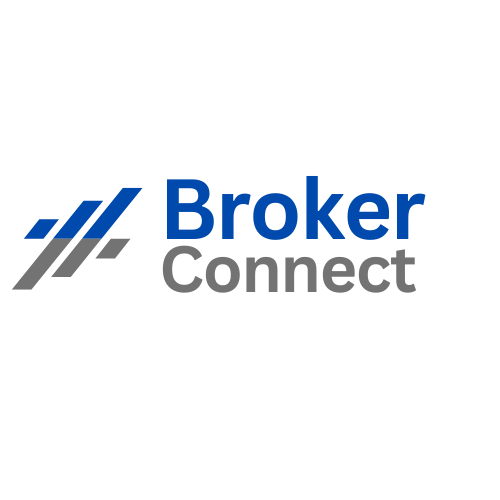Strategic comparison of health insurance solutions for distributed teams, analyzing ACA marketplace plans versus private group coverage, including compliance considerations and cost-benefit analysis for growing companies.
Running a distributed workforce is liberating—and complicated. Payroll spans time zones, collaboration hops across clouds, and every employee still expects dependable health insurance. But which route delivers value without creating an administrative headache? Below is a practical guide that pits Affordable Care Act (ACA) marketplace solutions against traditional private group coverage, adds the fast-growing Individual Coverage Health Reimbursement Arrangement (ICHRA) to the mix, and equips growing companies with a clear decision framework.
Why Remote Teams Rewrite the Health-Insurance Rulebook
The typical group policy was designed when nearly everyone clocked in at the same ZIP code. A remote model breaks that assumption. One engineer lives in Florida, another developer codes from Oregon, and a sales lead checks in from New York. A single state-based network rarely covers all three. According to a 2023 Forbes study, roughly 12.7 % of full-time staff are now fully remote, with another 28.2 % hybrid. That reality forces employers to rethink coverage, cost sharing, and compliance across multiple jurisdictions.
ACA Marketplace (SHOP): Small But Mighty ?
The Small Business Health Options Program was created so firms with 1-50 full-time equivalents could shop for group plans on a federally run exchange. Employers may unlock a tax credit worth up to 50 % of premium contributions—an appealing carrot for startups watching cash flow. Yet the plan you buy on the Florida exchange follows Florida network rules. Your Oregon coder could face out-of-network rates for routine care. Administration remains easy—one portal, one bill—but geographic rigidity makes SHOP less practical once your hiring map expands beyond state lines.
Pros
- Potentially significant Small Business Health Care Tax Credit.
- Straightforward enrollment through a single marketplace account.
- No medical underwriting; community rating keeps pricing predictable.
Cons
- Networks locked to the state of purchase.
- Plan variety can be limited in rural counties.
- Employee choice is narrower than in the individual ACA market.
Private Group Health Coverage in a Distributed Setting
Buying directly from an insurer—or via a broker—unlocks a broader palette of plan designs: PPO, HMO, EPO, high-deductible health plans paired with HSAs. According to Kaiser Family Foundation’s 2023 Employer Health Benefits Survey, the average annual premium reached $8,435 for single coverage and $23,968 for family coverage. Employers often absorb 72-83 % of that cost. However, geographic sprawl quickly complicates administration. A Texas-based PPO offers sterling in-network coverage in Dallas but scant access in Denver. Firms often juggle multiple state filings, separate invoices, and mismatched renewal dates.
Pros
- Extensive plan customization and network depth.
- Strong carrier partnerships and dedicated account service.
- Premiums are tax-deductible business expenses.
Cons
- No federal tax credits for small employers.
- Multi-state compliance can balloon legal risk.
- Premium spikes are common; budget forecasting grows tricky.
ICHRA: The Agile Middle Path
Enter the Individual Coverage Health Reimbursement Arrangement. Instead of offering one blanket plan, an employer earmarks a monthly, tax-free allowance. Each employee then shops for an individual policy—often on the ACA marketplace—tailored to local doctors, prescriptions, and budget. The result? One reimbursement policy replaces a patchwork of group contracts. According to multiple HR-tech analyses, defined-contribution models like ICHRA are exploding in popularity because they marry cost certainty for the company with choice for staff.
“For remote-first companies, traditional group health insurance is a square peg in a round hole… defined contribution models like ICHRAs offer the flexibility, compliance, and employee choice that modern workforces demand.” — Benefits consulting insight paraphrased from PeopleKeep.
Choosing the Right Health Insurance Model for Your Remote Team
Below is a condensed cost-benefit snapshot that highlights where each solution shines—and where it stumbles.
- Up-front Cost
• ACA SHOP: Potential 50 % tax credit, but limited network.
• Private Group: Broad design, highest premiums.
• ICHRA: Employer caps spend; employees may receive subsidies if the allowance is low enough. - Network Flexibility
• ACA SHOP: Single-state.
• Private Group: Multi-state possible but pricey.
• ICHRA: Each employee picks a local plan; nationwide reach. - Administrative Load
• ACA SHOP: Moderate (single portal).
• Private Group: High when multi-state.
• ICHRA: Low—most modern payroll platforms automate reimbursements. - Compliance Risk
• ACA SHOP: Low inside state lines, high for remote hires.
• Private Group: Medium to High across states.
• ICHRA: Low—reimbursement is federally compliant and location-agnostic.
Compliance Pitfalls & How to Dodge Them
State insurance commissioners guard consumer protections fiercely. Offering a Florida-only group plan to a California employee can breach “network adequacy” regulations, exposing employers to fines or lawsuits. Meanwhile, failing the Affordable Care Act’s affordability test triggers Employer Shared Responsibility penalties for companies with 50+ full-time equivalents.
Risk-mitigation tips:
- Audit employee locations quarterly; flag any new states immediately.
- Consult a licensed broker on state filing requirements before issuing offers.
- If using ICHRA, set clear allowance tiers and distribute the required notice at least 90 days before the plan year.
- Maintain meticulous reimbursement records for IRS and Department of Labor reviews.
Decision Framework for Growing Companies
Use this simple rubric when evaluating health insurance options:
- Headcount & Geography: Under 50 employees, one state → SHOP or private group. Over three states → consider ICHRA.
- Budget Volatility Tolerance: Need fixed costs → ICHRA. Comfortable with variable premiums → group plans work.
- Culture of Choice: If wellness personalization is a talent magnet, reimbursements score higher.
- Administrative Bandwidth: Lean People-Ops teams often favor ICHRA automation over multi-state plan management.
Frequently Asked Questions
1. Can we combine an ICHRA with a small private group plan ?
Yes—companies sometimes offer a base allowance through ICHRA and retain a limited group plan for legacy employees in headquarters.
2. Will employees lose ACA premium subsidies if we launch an ICHRA ?
Only if your allowance is deemed “affordable” under ACA rules. A modest stipend may still let eligible staff claim subsidies.
3. Does a remote contractor qualify for employer-sponsored health insurance ?
Generally, no. Independent contractors are not employees. Extending group coverage to them could endanger the plan’s tax-favored status.
4. How long does it take to implement each option ?
• ACA SHOP: 2-4 weeks for quoting and enrollment.
• Private Group: 4-8 weeks, longer if multi-state.
• ICHRA: 1-3 weeks once payroll integration is ready.
Final Thoughts & Next Steps
The right health insurance strategy balances cost predictability, compliance, and employee experience. ACA marketplace plans shine for single-state micro-firms; private group coverage excels when deep networks matter; ICHRA offers a scalable sweet spot for remote organizations craving simplicity and choice.
Ready to design a benefits package that grows as fast as your team ? Contact our advisors at Broker Connect LLC to discuss your remote team’s insurance strategy today.


